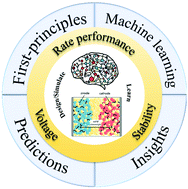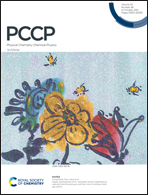First-principles materials simulation and design for alkali and alkaline metal ion batteries accelerated by machine learning
Abstract
The challenge of regeneration of batteries requires a performance improvement in the alkali/alkaline metal ion battery (AMIB) materials, whereas the traditional research paradigm fully based on experiments and theoretical simulations needs massive research and development investment. During the last decade, machine learning (ML) has made breakthroughs in many complex disciplines, which testifies to their high processing speed and ability to capture relationships. Inspired by these achievements, ML has also been introduced to bring a new paradigm for shortening the development of AMIB materials. In this Perspective, the focus will be on how this new ML technology solves the key problems of redox potentials, ionic conductivity and stability parameters in first-principles materials’ simulation and design for AMIBs. It is found that ML not only accelerates the property prediction, but also gives physicochemical insights into AMIB materials’ design. In addition, the final part of this paper summarizes current achievements and looks forward to the progress of a novel paradigm in direct/inverse design with the increasing number of databases, skills, and ML technologies for AMIBs.

- This article is part of the themed collection: PCCP Perspectives


 Please wait while we load your content...
Please wait while we load your content...